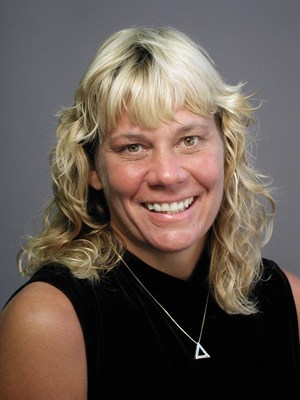PHILADELPHIA, Aug. 7, 2014 /PRNewswire-USNewswire/ -- Human milk is infant food, but for sick, hospitalized babies, it's also medicine. That's the central premise of a series of articles in a neonatal nursing journal's special issue focused on human milk for sick newborns. The articles are being published during World Breastfeeding Week, Aug. 1-7, 2014.

Multiple public health and professional medical associations from the World Health Organization to the American Academy of Pediatrics have endorsed the widespread advantages of human milk and breastfeeding for all infants. A new issue of Advances in Neonatal Care is devoted to best practices in providing human milk to hospitalized infants.
"The immunological and anti-inflammatory properties of human milk are especially important for the critically ill infants in our intensive care units," said Diane L. Spatz, Ph.D., R.N.-B.C., FAAN, nurse researcher and director of the Lactation Program at The Children's Hospital of Philadelphia (CHOP), and the invited guest editor of the August 2014 issue of the journal, published by the National Association of Neonatal Nurses.
An internationally prominent lactation expert, Spatz leads a robust breastfeeding and Lactation Program at CHOP. CHOP is already on the cutting edge of human milk science and lactation services with a state-of-the-art Human Milk Management Center, and round-the-clock support from nurses and international board-certified lactation consultants, as well as widespread institutional support. At CHOP, more than four out of five infants discharged from the Hospital's intensive care units are receiving human milk.
The Hospital has used donor human milk since 2006 for at-risk infants to supplement a mother's own milk supply if it is insufficient or if the mother is unable to provide milk for her infant. This week, CHOP announced plans to launch a non-profit milk bank with the Human Milk Banking Association of North America within a year, an onsite resource not commonly offered within a U.S. children's hospital.
In the special issue, Spatz and her colleagues from CHOP and other institutions cover a variety of topics on the provision of human milk in the neonatal intensive care unit (NICU), including original research articles, ethical rationales for the provision of human milk, and evidence-based methods for implementing particular programs.
- "Characteristics of the NICU Work Environment Associated with Breastfeeding Support," original research led by Sunny G. Hallowell, Ph.D., PPCNP-BC, IBCLC, of the University of Pennsylvania School of Nursing, analyzes data from a 2008 survey of 6,060 registered nurses in 104 NICUs. This large national sample found that overall, NICU nurses provided breastfeeding support to about 1 in 7 mothers, around the clock. Infants and mothers were more likely to receive this support in units with adequate nurse staffing. Low-birthweight infants were significantly more likely to be discharged on human milk when NICUs were staffed by nurses with B.S.N. degrees.
- "An Ethical Case for the Provision of Human Milk in the NICU," by Elizabeth B. Froh, Ph.D., R.N., clinical supervisor of CHOP's Lactation Team and the Human Milk Management Center, and Spatz, argues that under the "best interest principle" the infant's best interest, not parental authority, should have priority in guiding infant feeding practices, particularly for critically ill babies in the NICU. The well-documented health benefits of human milk, say the authors, make it the optimal form of nutrition for those infants.
- "Implementation of a Human Milk Management Center," by Spatz and colleagues describes the CHOP experience in developing its Human Milk Management Center. This centralized facility optimizes the provision of human milk for the most vulnerable infants, allowing staff to analyze human milk, fortifying milk under clean conditions, and making skim milk for infants with conditions requiring it. The authors also discuss logistical considerations, staff training requirements for milk technicians, best safety practices and other organizational processes.
Additional articles in the issue examine these topics:
--An integrative review of breast pumping support needed by mothers of NICU infants
--Congenital hyperinsulinism: exclusive human milk and breastfeeding
--Implementing a breastfeeding peer support group in a children's hospital
--Considerations in meeting protein needs of the human milk-fed preterm infant
--Environmental factors affecting breastfeeding duration within a NICU
"Supporting the use of human milk is one of the most effective evidence-based strategies to ensure an infant's safe journey through the NICU and promote optimal health and developmental outcomes for these children," added Spatz. "This special edition provides clinicians with tools in order to transform human milk and breastfeeding practices in their own institutions."
In addition to her CHOP position, Spatz holds a joint appointment as a Professor of Perinatal Nursing and the Helen M. Shearer Professor of Nutrition at the University of Pennsylvania School of Nursing.
Advances in Neonatal Care, August 2014.
About The Children's Hospital of Philadelphia: The Children's Hospital of Philadelphia was founded in 1855 as the nation's first pediatric hospital. Through its long-standing commitment to providing exceptional patient care, training new generations of pediatric healthcare professionals and pioneering major research initiatives, Children's Hospital has fostered many discoveries that have benefited children worldwide. Its pediatric research program receives the highest amount of National Institutes of Health funding among all U.S. children's hospitals. In addition, its unique family-centered care and public service programs have brought the 535-bed hospital recognition as a leading advocate for children and adolescents. For more information, visit http://www.chop.edu.
Contact:
Alison Fraser
The Children's Hospital of Philadelphia
Phone: (267) 426-6054
Cell: (267) 634-2701
frasera1@email.chop.edu
Photo - http://photos.prnewswire.com/prnh/20140806/134177
SOURCE The Children's Hospital of Philadelphia




